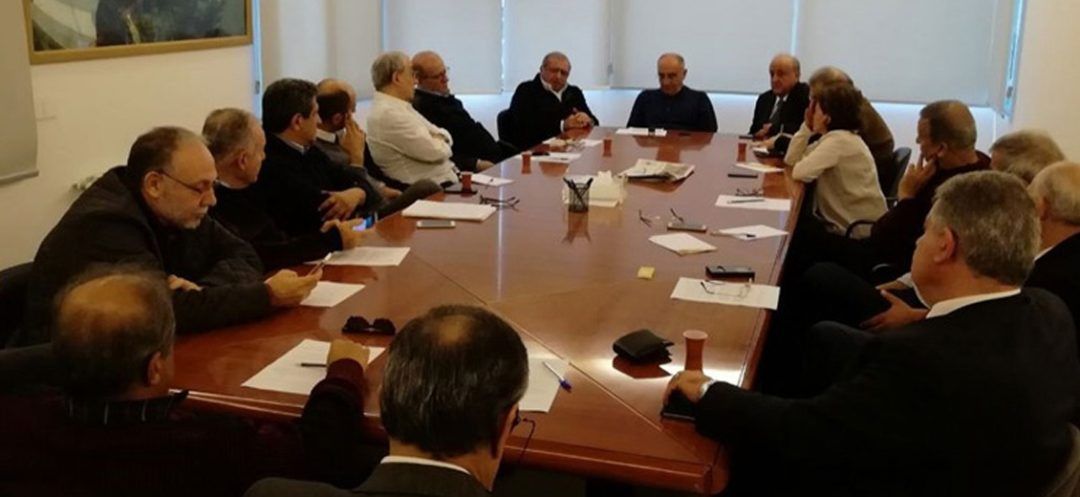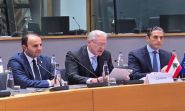
The Saydet el-Jabal Gathering noted that Hezbollah started feeling fatigued, as evidenced by the increasing frequency of its attacks on citizens who criticize it, as seen in Tyre and other places. “Despite promoting its commitment to internal peace since its inception, Hezbollah's actions betray this claim, as evidenced by recent incidents in Burj Hammoud and Hay Madi between Hezbollah supporters and residents, confirming that Hezbollah is experiencing genuine anxiety,” the gathering said after its weekly meeting.
The statement criticized MP Hassan Fadlallah's remark, “We die for Lebanon so you can enjoy peace,” and his invitation for expatriates to spend the summer in Lebanon, by saying that this remark shows “his detachment from reality in a country where no one cares about the basic needs of Lebanese citizens like water, electricity, and the internet.”
The gathering suggested that “Fadlallah aimed to lay the groundwork for the formation's narrative post-war, suggesting that those who make sacrifices should govern. This old-new rhetoric indicates that the likes of Hassan Fadlallah do not understand Lebanon.”
The statement also highlighted the danger of attempting to divide the Lebanese into those who martyr themselves for Lebanon and those who “benefit” from the martyrdom of others. Such a dangerous mindset undermines Lebanon's framework and will lead to internal conflicts, with Hezbollah being the biggest loser as a result.
“The journey towards downfall and national taboos has begun, similar to what Lebanon experienced during the civil war with its internal conditions,” the statement said, adding, “Therefore, it is necessary to prepare for this downfall by uniting Lebanese from all fronts and adhering to the constants, namely the constitution and legitimate Arab and international resolutions.”
The gathering pointed out that “this will create a Lebanese front capable of establishing a political, popular, and media balance with Hezbollah while also serving as an internal negotiator with international and regional decision-making centers for the future of Lebanon and the Lebanese.”
The statement criticized MP Hassan Fadlallah's remark, “We die for Lebanon so you can enjoy peace,” and his invitation for expatriates to spend the summer in Lebanon, by saying that this remark shows “his detachment from reality in a country where no one cares about the basic needs of Lebanese citizens like water, electricity, and the internet.”
The gathering suggested that “Fadlallah aimed to lay the groundwork for the formation's narrative post-war, suggesting that those who make sacrifices should govern. This old-new rhetoric indicates that the likes of Hassan Fadlallah do not understand Lebanon.”
The statement also highlighted the danger of attempting to divide the Lebanese into those who martyr themselves for Lebanon and those who “benefit” from the martyrdom of others. Such a dangerous mindset undermines Lebanon's framework and will lead to internal conflicts, with Hezbollah being the biggest loser as a result.
“The journey towards downfall and national taboos has begun, similar to what Lebanon experienced during the civil war with its internal conditions,” the statement said, adding, “Therefore, it is necessary to prepare for this downfall by uniting Lebanese from all fronts and adhering to the constants, namely the constitution and legitimate Arab and international resolutions.”
The gathering pointed out that “this will create a Lebanese front capable of establishing a political, popular, and media balance with Hezbollah while also serving as an internal negotiator with international and regional decision-making centers for the future of Lebanon and the Lebanese.”
Read more




Comments